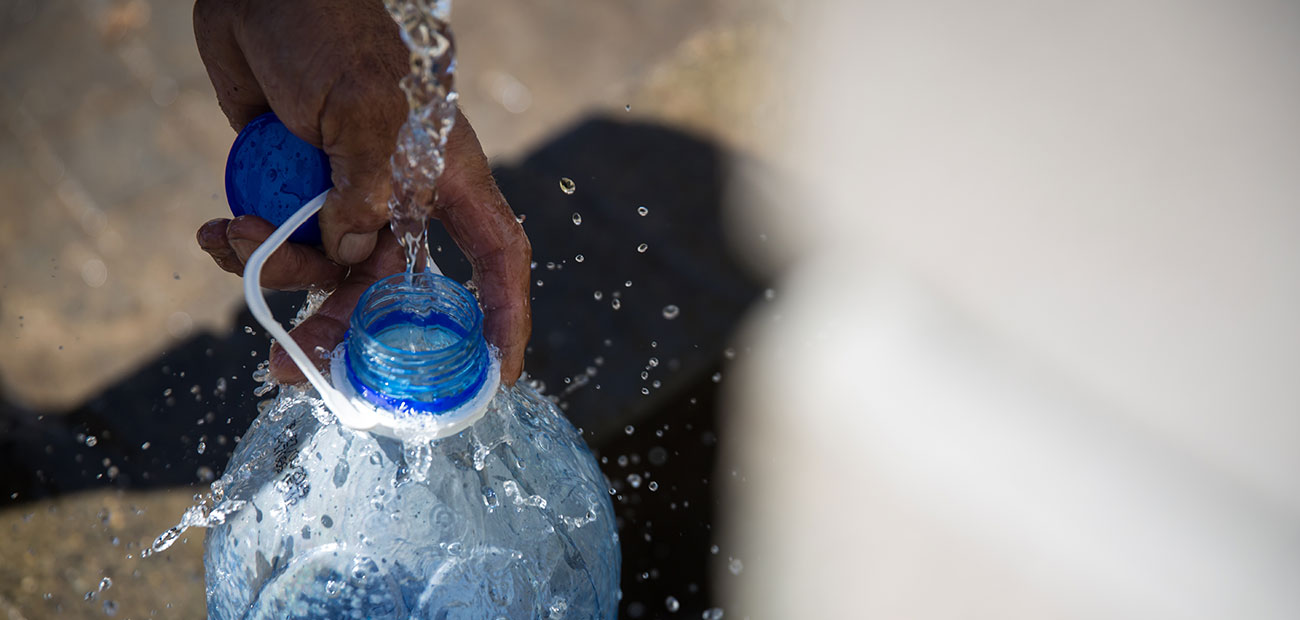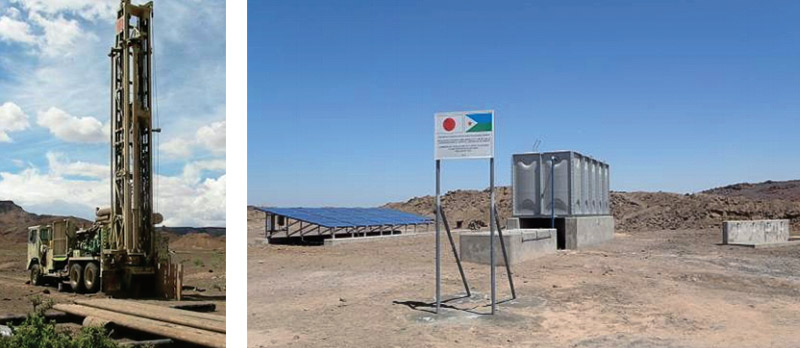Quenching Thirsts in Djibouti
OC Global’s surveys led to new wells, pumps for Djibouti.

Challenge
Help supply water to the people of Djibouti
It rarely rains in Djibouti and the average annual rainfall is about 150 mm. Since there are no rivers, many people rely on underground water flow below the wadi. However, many shallow wells dry up during the dry season. Even in areas that have water, it is often not drinkable because of high salinity due to the geological and geographical features of Djibouti. In urban areas, the water supply ratio is 92%, but in rural areas, the ratio is only 54%. Due to recent droughts, people in rural areas are suffering from not only an insufficient amount of drinking water but also a lack of water for daily use, agriculture, and livestock.
The Djibouti government requested the Japanese government to (1) construct water supply facilities (deep well, solar-powered pump, water tank) at 18 settlements in 21 villages, (2) provide material/equipment for well construction/water resource exploration, and (3) provide technical guidance on handling geophysical exploration equipment. Water supply facilities for the 18 target settlements were chosen from the plan of the PNSA (National Program for Food Security).
OC Global led the survey team for this project.
Services
The preparatory survey to select the project sites for construction of the water facilities was carried out from January 2010 to March 2011. In this survey, nine sites were selected based on social and hydrogeological surveys and the drilling of 15 test wells. Drilling of test wells was extremely difficult in very harsh working conditions, with temperatures of over 40 °C, poor access roads, and several interruptions due to flooding.
For the procurement of equipment and material, electric surveying equipment and drilling materials were selected for the project. Before starting the construction stage, one well was utilized for the city water supply by the Government of Djibouti.
Project components were formulated by the end of 2011. The construction stage started in April 2012 and eight water supply facilities were completed in May 2014. For the operation and maintenance of the water supply facilities, committees formed by the water users were established under the soft component activity. In the activity, training materials were made in collaboration with UNICEF and a professional illustrator from a Djiboutian newspaper.
In addition, a song celebrating the importance of water and the good maintenance of water facilities was composed by a professional Djiboutian musician and provided to the water committees. The song caused a demonstrable improvement in the consciousness of water users to keep the facilities clean and properly functioning.

Results
- Hydrogeological survey: Existing well data analysis (ground water level, water quality)
- Geophysical survey: Two-dimensional electrical imaging surveys at 26 sites
- Social condition survey: 28 sites
- Drilling of test wells: 15 sites (70–150 m/ well)
- Water quality test: Existing wells (38 samples) and test wells (13 samples)
- Water intake facility: Eight sites (solar pump system with elevated tank)
- Procurement of equipment:
- Surveying equipment for groundwater development
• Two-dimension electric surveying equipment
• Electrical logging equipment (for boreholes) - Drilling materials and support vehicles
• Drilling bits, casings, screens, etc.
• Pick-up trucks, mobile workshops, and crane trucks
- Surveying equipment for groundwater development
- Soft component:
- Training for groundwater surveying equipment (30 days for 10 people)
- Establishment of water committees for four constructed sites and training on operations for the water committees
ロケーション
ジブチ
正式名称
The Project for Rural Water Supply in Southern Djibouti
プロジェクトタイプ
Rural Water Supply
クライアント様
Ministry of Agriculture, Livestock, Fishery and Aquatic Resources / JICA
プロジェクト期間
2010 – 2014
持続可能な開発目標(SDGs)
New water facilities substantially increases water-use efficiency across all sectors; ensuring sustainable withdrawals of freshwater for the people of Southern Djibouti

